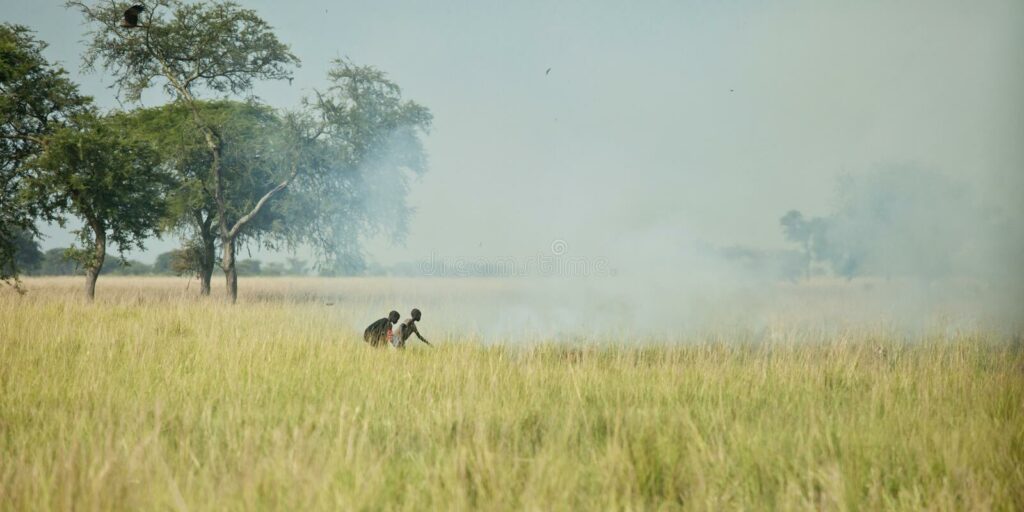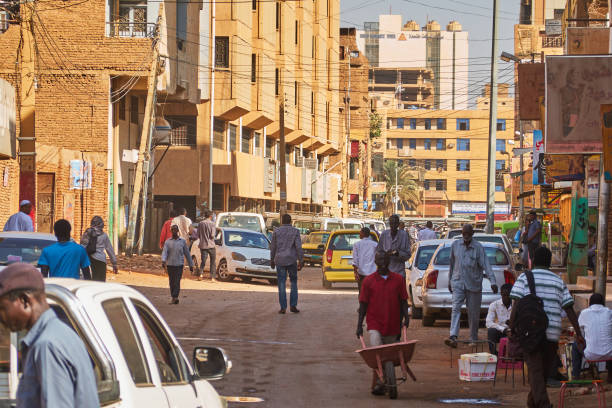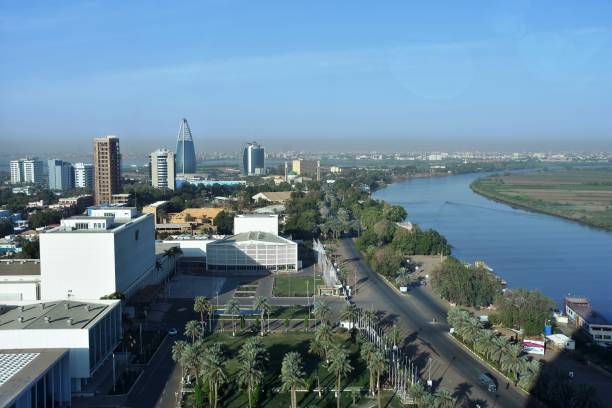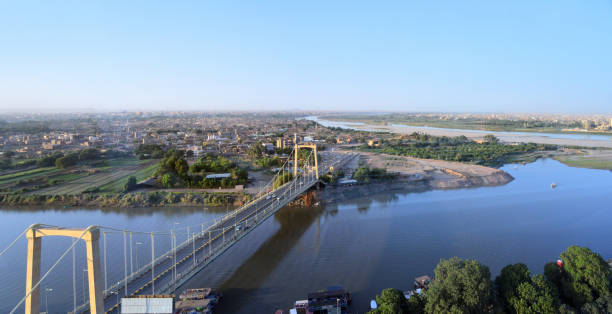Expat Cost of Living in South Sudan part 1 – that will be the topic of today’s article.
Before introducing this article, if you are interested in our core services which are expat financial, insurance and mortgages, you can contact me here.
The best time to consider your financial situation is when you are moving to a new country.
Introduction
Living in South Sudan can be very difficult; getting food, water, and shelter is hard. There are no roads to take you to other cities. These problems make it almost impossible for people living there to get what they want or need.
To make things even worse, the weather changes drastically throughout the year. The coldest months of the year are from December to February, and the hottest months are from June to August. During the coldest months, it can go down to 40 degrees below zero and during the month of January, there’s a wind chill factor.
Living in South Sudan as an expat is similar to living anywhere else. You go through the process of applying for a job, finding housing and settling into your new life. Perhaps with a few more precautions than you’d expect considering that warfare broke out not too long ago.

It is essential that you familiarize yourself with the current events before taking a position in South Sudan. You will quickly learn that it is a volatile region and a poor country, but if you arm yourself with some knowledge about the current events and how to anticipate them, your experience should be much more positive than negative.
In this article, we will walk you through the expat cost of living in South Sudan. Aside from this fact; we have compiled the tips to know before moving to this country. Not only is that, but you’ll know the best places to live as an expat, getting jobs and many other things to mention a few. Continue reading to know more.
Tips To Know Before Living in South Sudan

South Sudan, the world’s newest country, is experiencing tremendous social and economic upheaval. All South Sudanese people are scrambling to survive through daily life in a new nation, but foreign residents be they diplomats, NGO workers or business personnel face specific challenges. To help these new arrivals adjust and thrive, we put together some tips for living in South Sudan.
Stay Safe
South Sudan is still in the grip of major political and ethnic conflict. Foreigners, especially those who work for NGOs or own businesses, are prime targets for robbery and kidnapping. Some criminals even attack foreigners simply to steal their vehicles (if you drive) and valuable goods like mobile phones. Because of the threat, you should hire security guards or keep a weapon handy.
Hire a Vehicle
The number of cars in South Sudan is quickly increasing as more people move to Juba and other cities. Unfortunately, roads are terrible and they’re not getting any better. Potholes, rocks, animals crossing the road and slow cars make driving a real hazard. To avoid the hassle, hire drivers or purchase a four-wheel-drive vehicle that can take you anywhere.
Power Outages
Power outages are common throughout Juba from your home, office, and even during meetings at the Ministry of Energy. If you’re coming from somewhere with steady power, you’ll need to be creative. Use a generator, solar panels or crank up the radio for background music during business meetings.
Internet Problem
While internet availability is increasing throughout Juba, it’s still really slow and not very reliable. The country has one undersea fibre-optic cable connection with Sudan, which is not enough to satisfy demand. If you’re used to lightning-fast internet, you’ll need to wait or get creative.
Stay Healthy
Malaria is endemic in South Sudan, so do your best to avoid getting bitten by mosquitos. Stock up on mosquito nets, insect repellent, and sleep under an anti-mosquito net if possible. Also, the water and food aren’t usually up to your standards (if you can call any standards here).
With that being said, be sure to carry bottled water at all times and stick to fruit and veggies that you either peel yourself or boil for twenty minutes. You should also get vaccinated before coming especially if you’ll be going into remote regions. Some vaccines, like yellow fever, require a certificate of vaccination to enter South Sudan so check with your doctor before traveling.
Keep Calm and Carry On
Despite the difficulties, living in South Sudan is a rewarding experience that will give you great insight into a country filled with rich culture and diversity. Plan ahead as best you can, but don’t over-plan. Once you’re here, the only thing you can really do is be present and roll with the punches. Enjoy!
Consider Adopting a Child from South Sudan
Did you know that there are thousands of children in South Sudan who need homes? You can choose to adopt an older child (ranging in age from 8-15) and provide them with a loving home and family. The adoption process is quick and you’ll get to take your new child back to the U.S. for citizenship, school and a better life.
Cost of Living in South Sudan Today

As reported by the World Bank, the Republic of South Sudan is one of the least developed countries in Africa. Despite earning considerable revenue from crude oil, poverty rates remain high and job opportunities are few.
The Republic has faced threats to its political stability since gaining independence in 2011, with conflict erupting again in 2013. As South Sudan faces political uncertainty, the cost of living in the country is rising. While the cost of living in South Sudan has risen significantly in recent years, salaries have not kept pace.
According to data from Numbeo, consumer prices are 56.96% higher today than they were in January 2017 when South Sudan declared independence from Sudan. Other qualities of life indicators have declined in tandem with the cost of living. Inflation has been estimated at 38% by the CIA World Factbook. Meanwhile, unemployment is currently estimated at 50% and poverty rates continue to worsen.
The most significant price increases occurred in food products, household goods, transportation, restaurants, and utilities. Sanitation is another factor contributing to cost of living increases in South Sudan, as the rise of waterborne diseases continues to affect the country’s population.
Due to poor sanitation systems and lack of access to clean drinking water, more than 30% of people suffer from intestinal parasitic infections. Major causes for these health conditions include open sewage systems, contaminated food products, and unsanitary water.
Understanding the Cost of living in South Sudan

The cost of living in South Sudan is low compared to many other African countries. The following is the price for some common items in South Sudan as of November 2021 with their equivalents in US dollars under $100.00. Prices are subject to change with inflation, which has occurred rapidly since the country’s independence. Inflation as of June 2021 was at 19.5%. Below are the prices of goods/services.
Fuel
In South Sudan, both gas and diesel fuel prices are lowered from those in the United States. Fuel is subsidized by the government due to a lack of infrastructure and low population density, though black market fuel sales exist. As of November 2021, a gallon of regular unleaded cost between $3.415.
Education
In South Sudan, education is free from pre-school to high school. Meanwhile, tuition is low for those that choose to attend the University of Juba or any other public post-secondary institution in South Sudan including private institutions. Tuition as of September 2021 was $300.00 USD for one semester.
Food
The cost of food in South Sudan is very low. Fish, beef, goat meat, chicken and vegetables are all available at market prices depending on the season or location where acquired. As of May 2021, the price for about 10 pounds (3.5 kg) of play was $100.00 USD at Lokichoggio Market in Kenya and $80.00 USD at the local market in Juba, South Sudan.
Housing
Housing prices for a three-bedroom house in South Sudan range from $80,000 USD to $100,000 USD depending on location and amenities such as electricity or running water. Houses are mostly built on their own, with limited services provided by the government due to cost.
Transportation Cost
Transportation costs are very low in South Sudan. Government-subsidized buses provide transportation within each of the states at a cost of only $2.20 per ride. Bus service is available throughout Juba and many other towns for between $1.20 and $3.40 per ride depending on the state or town being traveled to. Vehicles are cheap, costing around $3,000–$7,000 USD depending on the type of vehicle purchased. Ambulances are required by law for every major hospital in South Sudan with prices set by the national government at between $20,000 and $40,000 USD.
Communications
Voice calls within South Sudan or to Kenya are free with an enhanced call service available for a small fee. SMS communications are also free throughout the country. Data is considered expensive in South Sudan at around $10/GB though this varies depending on which provider one subscribes to.


